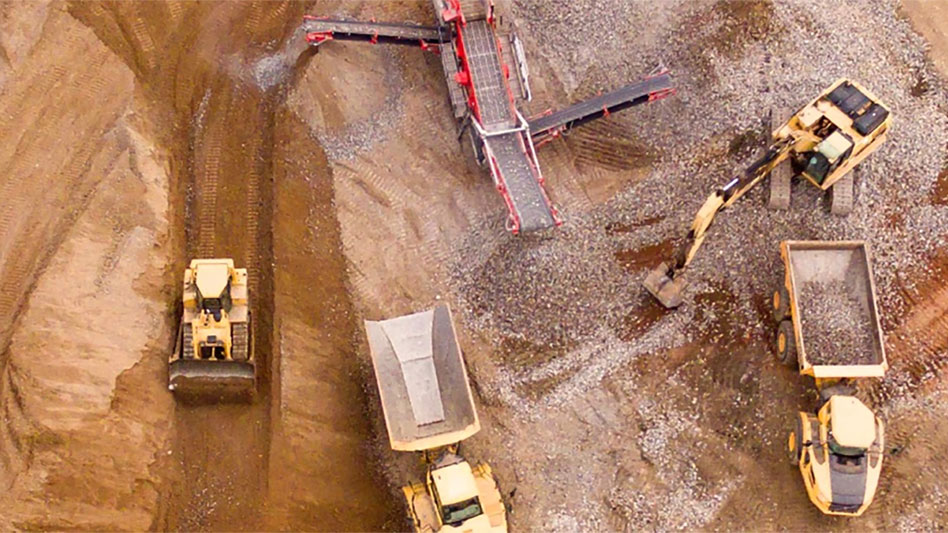
By Kenneth Christiane L. Basilio, Reporter
A BILL establishing a new fiscal regime for large-scale miners has hit an impasse at the bicameral conference committee, with legislators failing to resolve a deadlock over a proposed ban on ore exports, a senior member of the House of Representatives said.
A “workable compromise” on the mineral ore export ban is necessary for the measure to move forward, Albay Rep. Jose Ma. Clemente S. Salceda told BusinessWorld.
“It’s an impasse,” he said via Viber, adding that such a compromise has not yet emerged.
The ore export ban, which Mr. Salceda said was supported by some Senators, is designed to force investment in domestic mineral processing facilities. The absence of such processing plants makes the mining industry an ore exporter, losing out on the opportunity to add value to the Philippines’ commodity mineral ores.
The Philippines is estimated to hold about $1 trillion worth of copper, gold, nickel, zinc and silver ore reserves, much of which is shipped in ore form to Japan or China in the absence of processing infrastructure and high power costs.
Mr. Salceda said the proposal to force investment in domestic smelting facilities “could backfire” because of the “risks of pushing exports underground, losing up to $4 billion (P223 billion) in legal trade, and scaring off investors already starting to process locally,” he said.
“We are not ready to refine everything here,” he added, noting that stubbornly high power costs are discouraging investment in smelting facilities. Electricity rates are among the highest in Southeast Asia, according to a 2022 Ateneo de Manila University report.
“Industrial power costs are over $0.10 per kilowatt-hour,” Mr. Salceda said. “Smelters need $0.05 to $0.07 to operate competitively.”
He said the government should levy an export tax instead of an outright export ban, but the Department of Finance is not supportive of his proposal to the bicameral conference committee.
The mining industry does not support an export ban nor an export tax over raw minerals, Chamber of Mines of the Philippines Chairman Michael T. Toledo said via Viber.
“We support neither proposal,” he said. “Imposing an export tax on miners while already increasing excise taxes on large-scale metallic mining… would result in an overlapping tax situation that would reduce the mining sector’s viability.”
He said potential investors may see the proposed tax regime as “unstable” and “overly burdensome,” which could discourage foreign direct investment in mining.
“A balanced, transparent and stable tax policy is generally more effective for sustainable resource management,” Mr. Toledo said.
Authorities should instead look at improving infrastructure and making electricity cheaper while tweaking mining regulations to attract investment in mineral processing, he added.
The government is pushing to simplify its mining fiscal regime to capture a greater share of industry profits, with President Ferdinand R. Marcos, Jr. saying last year that rationalizing duties could create a more equitable wealth-sharing system from the industry while making taxes simpler to attract investment.
Tax obligations for miners currently vary depending on their agreements with the government.
A priority measure of the Marcos administration, the proposed mining fiscal regime overhaul intends to charge large-scale miners operating within mineral reservations 4% of their gross output, according to House Bill No. 8937, which was approved in September 2023.
Senators are pushing for a 5% rate in Senate Bill No. 2826, which passed in February.
The House also proposed an eight-tier margin-based royalty regime ranging from 1.5% to 5% and a 10-tier windfall profit tax system ranging from 1% to 10%; while the Senate is seeking a five-tier margin-based royalty system ranging from 1% to 5% and a windfall profit tax system ranging from 1% to 10%.
The bicameral conference committee has been meeting since February, not counting an election campaign break.
The 19th Congress is set to resume session on June 2 for its last two weeks, which would be the final opportunity for both chambers’ representatives to finalize the measure before the new Congressional starts in late July.
Failure to pass the proposed mining fiscal regime would be a “waste of time” for “the industry, other private stakeholders and the government,” Mr. Toledo said adding that the lack of progress towards a signed law could cut into the government’s ability to effectively capture revenue from the industry.